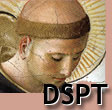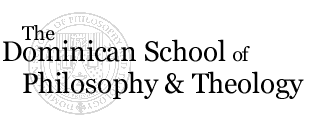

MASTER OF DIVINITY PROGRAM PROGRAM FOR ORDAINED MINISTRY
This program helps candidates studying for the priesthood or diaconate in the Roman Catholic Church to grow intellectually and spiritually in accordance with the guidelines of the Program of Priestly Formation of the National Council of Catholic Bishops. Such candidates integrate their academic and spiritual formation through participation in the formation programs of their religious community or diocese in collaboration with the faculty of the SchoolFour-Year Program Option Students may choose a distribution of courses over a four-year period instead of the normal three-year period. This option provides an additional 15 units of course work specifically designed to complement the 81 units required in the three-year M.Div. program. Students for ordained ministry may choose this option to fulfill the four years of theological study canonically required for ordination in the Roman Catholic Church.
Admission Requirements
Applicants preparing for ordained ministry in the Roman Catholic Church must be in a formation program of a religious community or a diocese.
The courses in the M.Div. program presuppose a basic foundation in philosophy as well as an introduction to Scripture such as that provided in the DSPT undergraduate program. This is understood to include 18 semester units of philosophy and 6 units of introduction to Scripture equivalent to the following courses: Philosophy of Nature, Philosophical Anthropology, Metaphysics, Ethics, Modern Philosophy, Contemporary Philosophy, and introductory courses in both the Old and the New Testaments. Where a deficiency exists, the Admissions Committee may propose some remedy
Degree Requirements
The Master of Divinity degree represents the completion of a three-year (six semester) program of studies involving 81 units of academic and field education courses. Maximum time permitted for the completion of the M.Div. program is six years, computed from the date of initial registration in the program. Students are required to maintain a 2.3 grade point average.
Course requirements
The Master of Divinity program requires the completion of 81 units of course work including 69 units of required courses and 12 of electives. The four-year option provides 96 units of course work over a four-year period, including 81 units of required courses and 15 units of electives. Students must take at least one-third of the total required course work from DSPT and are encouraged to take one-third from outside DSPT. Students following the four-year option take all the courses under Historical Theology (6 units), Dogmatic Theology (24 units), Moral Theology (12 units) and five courses in Scripture (15 units, six in Old Testament and nine in New Testament). Any M.Div. student may enroll concurrently in the M.A. program, as described below.
Four-year students also take 8 courses in Pastoral Theology (24 Units).
| Historical Theology | History of Christianity I (3) History of Christianity II (3) |
| Scripture |
Old Testament Pentateuch (3) Prophets, Wisdom, or thematic course offering (3) New Testament Synoptic Gospels (3) Gospel of John (3) Soteriology of St. Paul (3) |
| Systematic Theology /Dogmatic Theology |
Revelation and Theology (3) The One, Creator God (3) Trinity (3) Christology I (3) Christology II (3) Sacraments of Initiation (3) Sacraments of Healing and Vocation (3) Ecclesiology (3) Moral Theology Christian Anthropology (3) Fundamental Moral Theology (3) Justice (3) Christian Faith, Hope, and Love (3) |
| Pastoral Theology | Liturgy (3) Preaching (3) Canon Law: Intro / Marriage (3) Confessional Ministry (1.5) Liturgical Celebration (1.5) Pastoral Counseling (3) Field Education (9) |
Thomistic Specialization
The particular philosophical and theological tradition of the Dominican Order is that of St. Thomas Aquinas. DSPT, therefore, offers a Thomistic specialization in the M.Div. program by emphasizing his thought and making use of his writings where appropriate in the eleven courses in systematic theology listed above. While some students may be required to follow this specialization by the formation program of their province or Order, all students wishing to learn this tradition are encouraged to take all of these courses.Equivalent Courses
Courses in other areas of theology will be considered equivalent to required DSPT courses if they cover substantially the same material envisioned in the DSPT course requirement.Systematic theology courses in the DSPT M.Div. curriculum contain the following elements:
- a general introduction to the subject
- its sources in Scripture, Tradition and the teaching of the Church
- important approaches to the subject, both historical and modern
- the thought of St. Thomas on the subject.
Field Education
Field Education is an integral part of the M.Div. program. Students may enroll in Field Education courses during the entire period of their training. A variety of Field Education courses are offered each year in order to assist students in developing a balanced understanding of the requirements of pastoral ministry. Field Education consists of three components:- the actual field ministry
- supervision
- theological reflection
All three components will be credited in accord with the following norm: 40 hours is equivalent to one credit hour. The student is expected to move gradually from Introductory Field Education to Advanced Field Ministry, to the final phase of Field Education, the Art of Pastoral Supervision. Two alternatives to advanced field education may be chosen: Clinical Pastoral Education (CPE) during the summer, or a residency year (i.e., a year of supervised pastoral work).
Elective courses
DSPT and GTU offer a wide variety of courses from which students may choose according to their particular needs and interests. Electives are an integral part of a student's regular program and should normally be related to theology. However, up to six units of any combination of the following languages may be used to fulfill elective requirements in the M.Div. program: Hebrew, Greek, intermediate or advanced Latin, and intermediate or advanced Spanish.Online Application Menu
Master of Divinity Application Menu